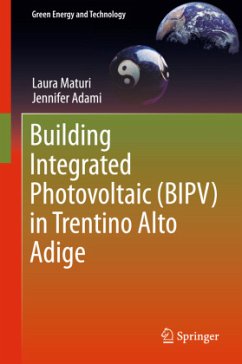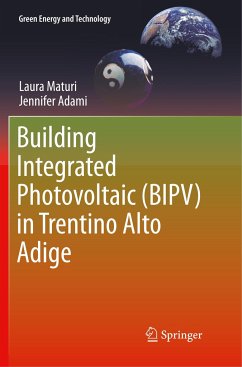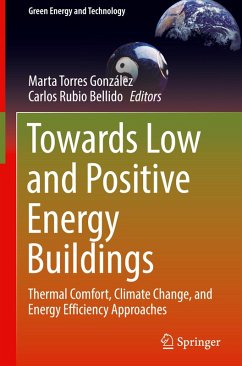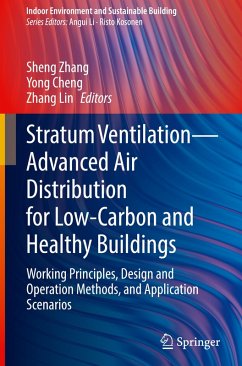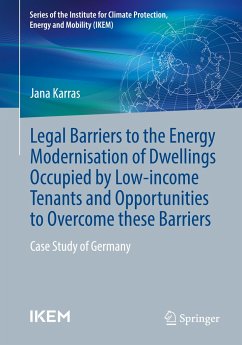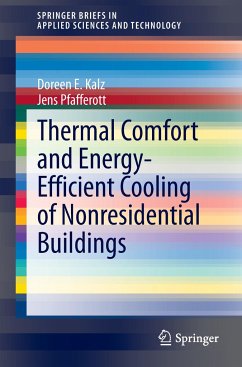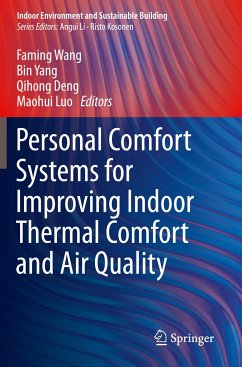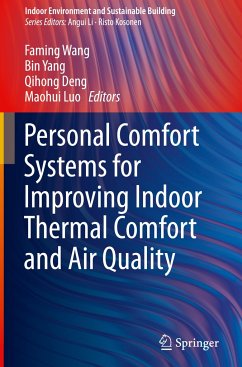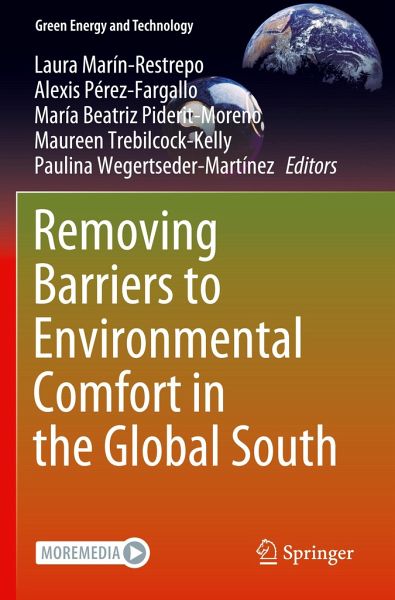
Removing Barriers to Environmental Comfort in the Global South
Versandkostenfrei!
Versandfertig in 6-10 Tagen
136,99 €
inkl. MwSt.

PAYBACK Punkte
68 °P sammeln!
This book describes how comfort, energy and climate change in developing countries and vulnerable sectors of the population relate to buildings.The building sector is currently facing significant challenges connected to energy consumption, energy poverty and climate change effects. When studied in developing countries and vulnerable sectors of the population, these factors, which are commonplace in the tropics and the southern hemisphere, are interlinked and share a critical component: environmental comfort. Although progress has been made in environmental comfort through research and the deve...
This book describes how comfort, energy and climate change in developing countries and vulnerable sectors of the population relate to buildings.
The building sector is currently facing significant challenges connected to energy consumption, energy poverty and climate change effects. When studied in developing countries and vulnerable sectors of the population, these factors, which are commonplace in the tropics and the southern hemisphere, are interlinked and share a critical component: environmental comfort. Although progress has been made in environmental comfort through research and the development of standards and policies at the international level, in the Global South, where the countries with the highest levels of income inequality are concentrated, environmental comfort has its own characteristics and challenges that prevent a clear understanding from the established vision of the Global North.
This book presents research, theories and techniques relatedto Thermal comfort, Indoor air quality, Visual comfort, and Acoustic comfort and its relationship with energy use and energy efficiency, seeking to address different barriers to environmental comfort. It shows how to improve the way buildings are designed and operated to promote healthier environmental conditions and more sustainable construction, by presenting studies and reflections carried out in the target geographical area: the Global South. In this way, this book contributes to developing the concept of environmental comfort, visualising how progress has been made in understanding it from a tropical and southern perspective, and posing common challenges.
The book is intended for engineers, architects, and researchers of the built environment who are interested in environmental comfort and its influence on energy consumption, energy poverty, and other related factors in the Global South context. It is also a useful resource for decision-makers and public policy developersconcerned with the indoor comfort of buildings. Moreover, the book aims to provide guidance for those in developing countries by gathering existing knowledge in the field for the tropics and southern hemisphere climatic and sociocultural contexts, allowing us to move forward in this subject with actions and proposed solutions that fit our particular needs.
The building sector is currently facing significant challenges connected to energy consumption, energy poverty and climate change effects. When studied in developing countries and vulnerable sectors of the population, these factors, which are commonplace in the tropics and the southern hemisphere, are interlinked and share a critical component: environmental comfort. Although progress has been made in environmental comfort through research and the development of standards and policies at the international level, in the Global South, where the countries with the highest levels of income inequality are concentrated, environmental comfort has its own characteristics and challenges that prevent a clear understanding from the established vision of the Global North.
This book presents research, theories and techniques relatedto Thermal comfort, Indoor air quality, Visual comfort, and Acoustic comfort and its relationship with energy use and energy efficiency, seeking to address different barriers to environmental comfort. It shows how to improve the way buildings are designed and operated to promote healthier environmental conditions and more sustainable construction, by presenting studies and reflections carried out in the target geographical area: the Global South. In this way, this book contributes to developing the concept of environmental comfort, visualising how progress has been made in understanding it from a tropical and southern perspective, and posing common challenges.
The book is intended for engineers, architects, and researchers of the built environment who are interested in environmental comfort and its influence on energy consumption, energy poverty, and other related factors in the Global South context. It is also a useful resource for decision-makers and public policy developersconcerned with the indoor comfort of buildings. Moreover, the book aims to provide guidance for those in developing countries by gathering existing knowledge in the field for the tropics and southern hemisphere climatic and sociocultural contexts, allowing us to move forward in this subject with actions and proposed solutions that fit our particular needs.



